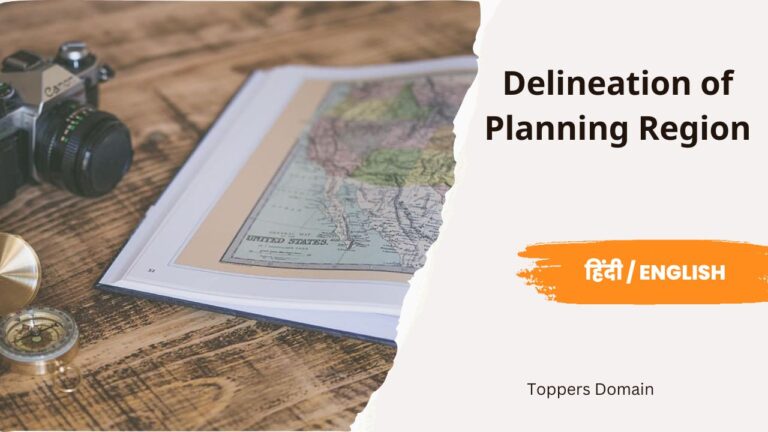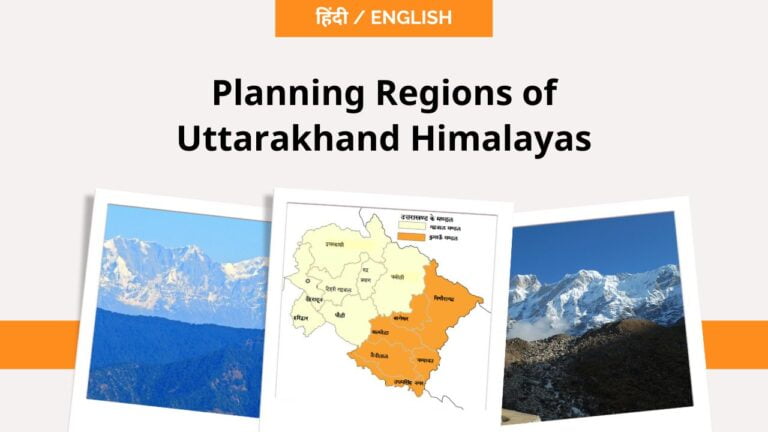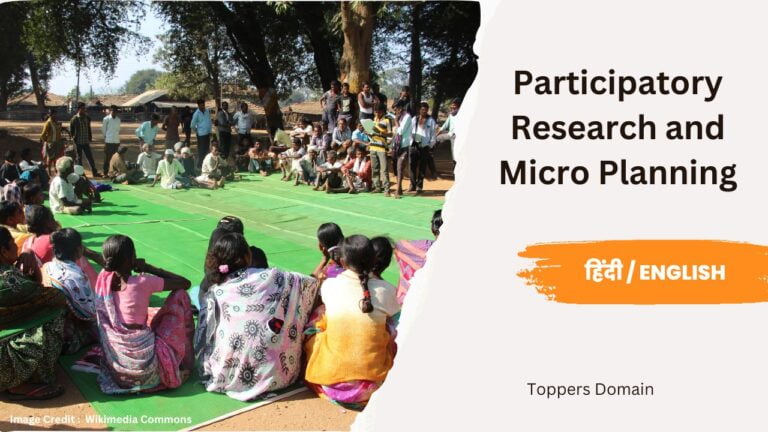Field Study in Geography
Regional Planning & Development
Index
Introduction
Field study in geography refers to the practical exploration and examination of geographical phenomena and processes in their natural settings. It holds significant importance in regional planning by providing first-hand knowledge and data about specific regions. Field studies enable geographers to observe and analyse the physical and human aspects of an area, including its landforms, climate, vegetation, population distribution and socioeconomic activities. This hands-on experience helps geographers understand the unique characteristics, challenges and potentials of a region, which is essential for effective regional planning. By gathering on-site information, field studies assist in identifying suitable locations for infrastructure development, resource management, environmental conservation and sustainable growth, leading to informed decision-making and well-designed regional plans.
Definition of Field Study
Field study, in the context of geography, refers to the systematic investigation and examination of real-world environments, both natural and built. It involves collecting primary data, conducting surveys, making direct observations and engaging in hands-on research to enhance understanding and knowledge about specific geographic phenomena.
Meaning of Field Study
Field study enables geographers to go beyond textbooks and maps, allowing them to experience the physical and human aspects of a particular region first-hand. By immersing themselves in the field, geographers can develop a deeper comprehension of geographical processes, spatial patterns and the interconnections between various elements of the environment.
Importance of Field Study in Geography
Enhances Spatial Perception
Field study provides geographers with the opportunity to develop a keen sense of spatial perception. By physically navigating through landscapes, examining topographic features and observing the arrangement of elements within a given space, geographers can gain a holistic understanding of the spatial relationships between different geographic components.
Offers Practical Application of Theoretical Knowledge
Field study bridges the gap between theory and practice. It allows geographers to apply their theoretical knowledge acquired in classrooms to real-world situations. By engaging in fieldwork, geographers can test hypotheses, validate existing theories and generate new insights that contribute to the advancement of geographical understanding.
Provides Direct Interaction with Local Communities
Field study enables geographers to directly interact with local communities, fostering a better understanding of the human-environment relationship. By engaging in interviews, surveys and participant observation, geographers can gain valuable insights into the social, cultural and economic dynamics that shape a region. This first-hand experience helps geographers identify the needs, challenges and aspirations of local communities, which is crucial for effective regional planning.
Facilitates Data Collection
Field study allows geographers to collect primary data that may not be readily available through secondary sources. By conducting surveys, taking measurements and making direct observations, geographers can gather accurate and up-to-date information. This data serves as the foundation for comprehensive spatial analysis and informs decision-making processes in regional planning.
Supports Spatial Analysis and Mapping
Field study provides geographers with the necessary data to create accurate maps and perform spatial analysis. By collecting data on landforms, vegetation, population distribution and other geographical features, geographers can generate detailed maps that reflect the spatial patterns and relationships within a region. These maps are vital tools for regional planning, helping to identify suitable locations for infrastructure, resource allocation and environmental conservation.
Encourages Critical Thinking and Problem Solving
Field study promotes critical thinking and problem-solving skills among geographers. By encountering real-world challenges and complexities during fieldwork, geographers are compelled to think analytically and creatively to overcome obstacles. This ability to think on their feet and devise practical solutions is invaluable when addressing the intricate issues involved in regional planning.
Conclusion :
Field study in geography is a fundamental approach that allows geographers to gain first-hand knowledge, collect authentic data, analyse spatial patterns and understand the complex interactions between the physical environment and human activities.
In the context of regional planning, field study plays a vital role in assessing natural resources, analysing land use patterns, understanding socio-cultural dynamics, evaluating infrastructure and accessibility, identifying environmental vulnerabilities and engaging stakeholders.
By integrating field study into regional planning processes, geographers can develop evidence-based strategies that promote sustainable development, enhance resilience and improve the overall quality of life within a region.
Share
Related Topics
Survey Techniques and Field Study
Other Topics
Unit - II







